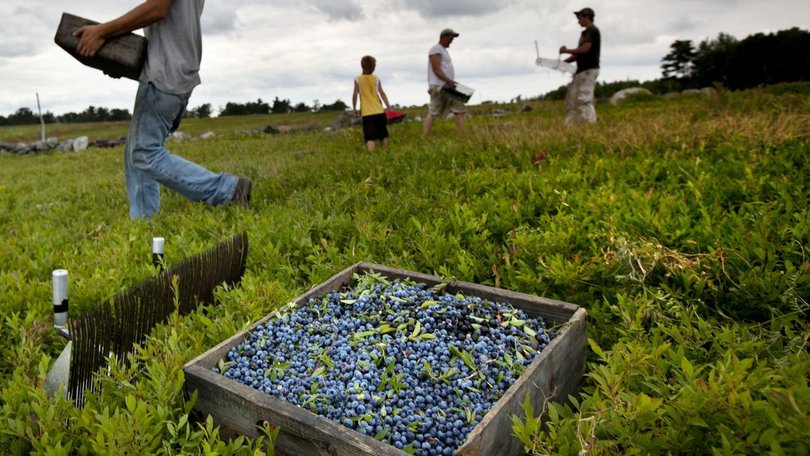Pesticides used on Australian berries sold at Coles and Woolworths under review amid health concerns
Blueberries, blackberries and raspberries have surged in popularity over the past decade.

Australians are eating more berries than ever before, with the surge in consumption triggering an urgent safety review into possible health risks from a common pesticide.
The appetite for blueberries, blackberries and raspberries has surged significantly in the past decade, however, the new figures put into question the use of a common chemical used to kill fruit flies.
The surge in consumption has prompted the Australian Pesticides and Veterinary Medicines Authority (APVMA) to suspend the use of chemical products containing dimethoate, pending a review into the risks of exposure to harmful levels.
Sign up to The Nightly's newsletters.
Get the first look at the digital newspaper, curated daily stories and breaking headlines delivered to your inbox.
By continuing you agree to our Terms and Privacy Policy.Although APVMA said the reassessment was required due to the approved label directions not leaving adequate safety margins between the possible level of dimethoate residues and the maximum acceptable level of exposure.
“The APVMA considers the level of residues detected are unlikely to pose a serious risk to human health, but has proposed suspension of these specific dimethoate products as a precautionary measure,” the chemicals watchdog said.
Dimethoate is considered a neurotoxin and has been widely used in Australia since the 1950s.
The chemical is banned for agricultural use in both the United States and Europe.

Despite the fear of health risks from the chemical, the APVMA said all other approved uses of dimethoate are currently considered safe.
Commenting on the decision by APVMA, Berries Australia said if dimethoate products are suspended as proposed, a deemed permit valid for one year would come into effect.
The permit would include a “withholding period” that allows the continued use of dimethoate, but require farmers to wait 14 days after use before harvesting.
Berries Australia chair Anthony Poiner told the ABC that extending the restriction period to two weeks would effectively ban the chemical.
Currently, farmers are only required to wait one day after spraying blueberries with the chemical to harvest, and seven days after spraying raspberries and blackberries.
“This (suspension) would be highly damaging to the berry industry because it is the most efficacious of all the chemical applications,” Poiner told the publication.
Following the closing of submissions on Wednesday, a decision on restricting dimethoate will be made later this month, with the APVMA saying no other chemicals used on blueberries, raspberries or blackberries require regulatory action at this stage.
Food Standards Australia and New Zealand (FSANZ) said people should still wash fresh fruit and vegetables under running water before eating. Consumers should avoid using soap, disinfectants or detergents to wash food.
Originally published on 7NEWS
